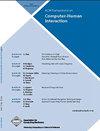The Anatomy of Hardware Reverse Engineering: An Exploration of Human Factors During Problem Solving
IF 6.6
2区 计算机科学
Q1 COMPUTER SCIENCE, CYBERNETICS
引用次数: 1
Abstract
Understanding of microchips, known as Hardware Reverse Engineering (HRE), is driven by analysts’ problem solving. This work sheds light on these hitherto poorly understood problem-solving processes. We propose a methodology addressing the problem of HRE experts being unavailable for research. We developed a training enabling students to acquire intermediate levels of HRE expertise. Besides one expert, we recruited eight top-performing students from this training for our exploratory study. All participants completed a realistic HRE task involving the removal of a copyright protection mechanism from a hardware circuit. We analyzed 2,445 log entries by applying an iterative open coding and developed a detailed hierarchical problem-solving model. Our exploration yielded insights into problem-solving strategies and revealed that two intermediates solved the task with a comparable solution time to the expert. We discuss that HRE problem solving may be a function of both expertise and cognitive abilities, and outline ideas for novel countermeasures.硬件逆向工程的剖析:问题解决过程中人为因素的探索
对微芯片的理解,被称为硬件逆向工程(HRE),是由分析师的问题解决驱动的。这项工作揭示了这些迄今为止鲜为人知的解决问题的过程。我们提出了一种方法来解决人力资源评估专家无法参与研究的问题。我们开发了一项培训,使学生能够获得中等水平的HRE专业知识。除了一名专家,我们还从这次培训中招募了八名表现最好的学生进行探索性学习。所有参与者都完成了一项现实的HRE任务,包括从硬件电路中删除版权保护机制。我们通过应用迭代开放编码分析了2445个日志条目,并开发了一个详细的分层问题解决模型。我们的探索深入了解了解决问题的策略,并表明两个中间人以与专家相当的解决时间解决了任务。我们讨论了HRE问题的解决可能是专业知识和认知能力的函数,并概述了新对策的想法。
本文章由计算机程序翻译,如有差异,请以英文原文为准。
求助全文
约1分钟内获得全文
求助全文
来源期刊

ACM Transactions on Computer-Human Interaction
工程技术-计算机:控制论
CiteScore
8.50
自引率
5.40%
发文量
94
审稿时长
>12 weeks
期刊介绍:
This ACM Transaction seeks to be the premier archival journal in the multidisciplinary field of human-computer interaction. Since its first issue in March 1994, it has presented work of the highest scientific quality that contributes to the practice in the present and future. The primary emphasis is on results of broad application, but the journal considers original work focused on specific domains, on special requirements, on ethical issues -- the full range of design, development, and use of interactive systems.
 求助内容:
求助内容: 应助结果提醒方式:
应助结果提醒方式:


